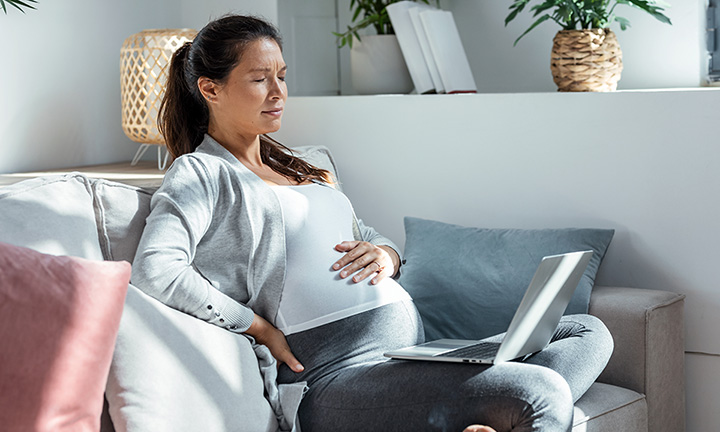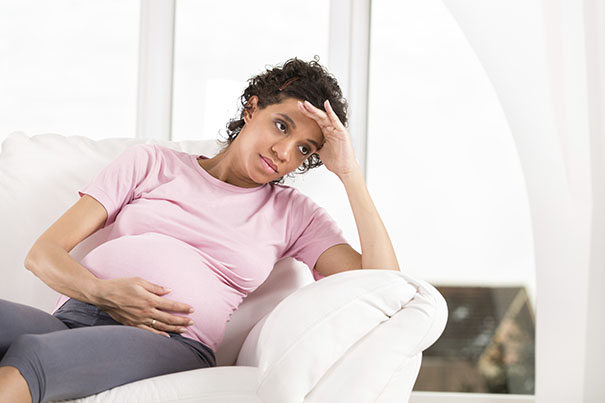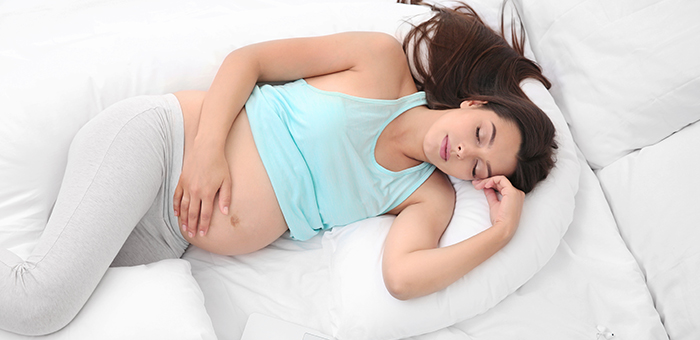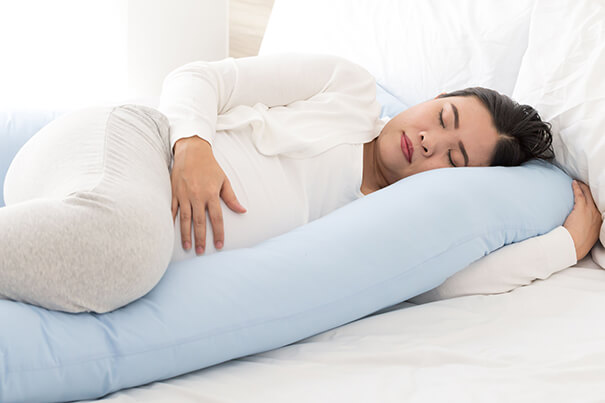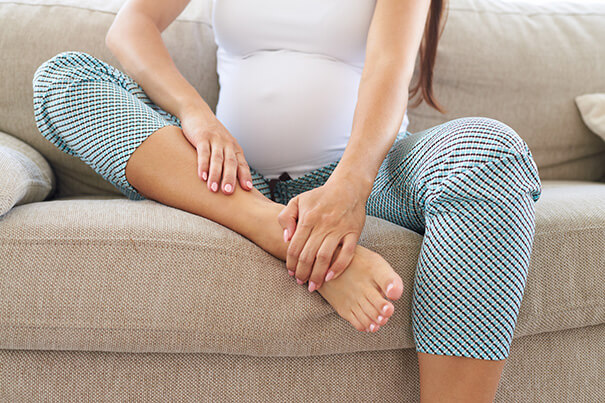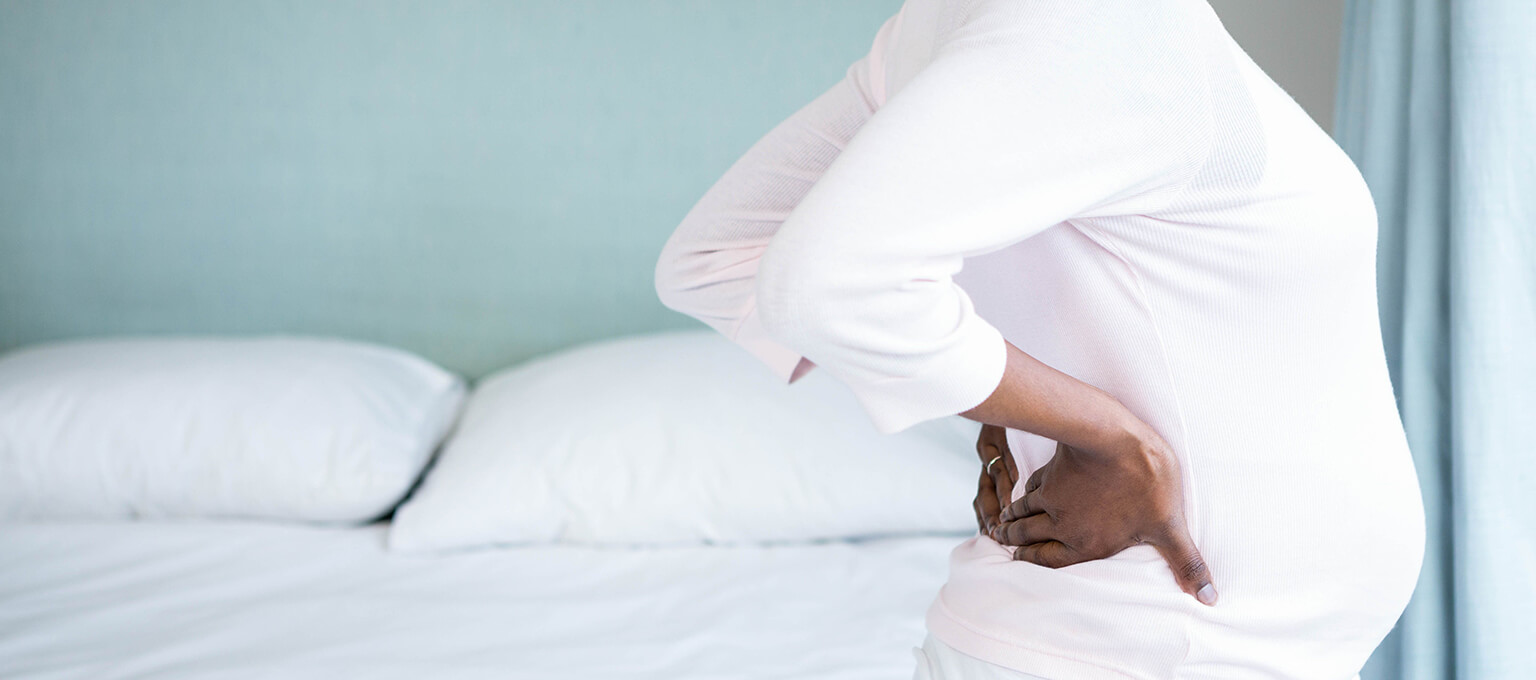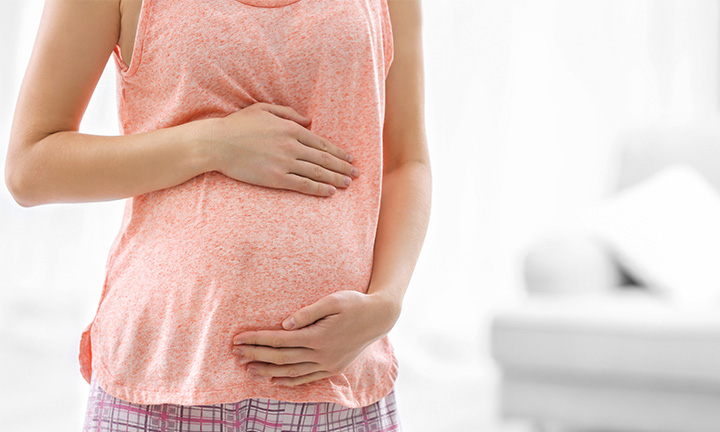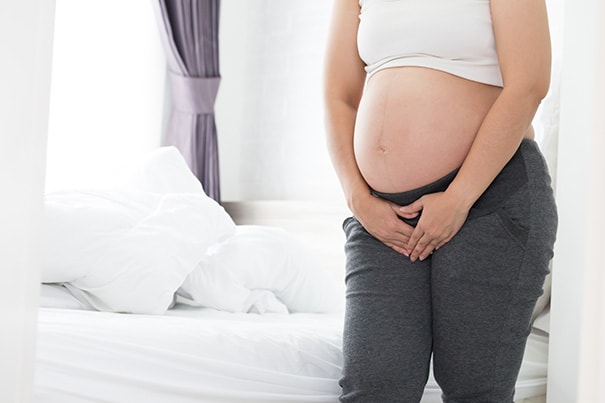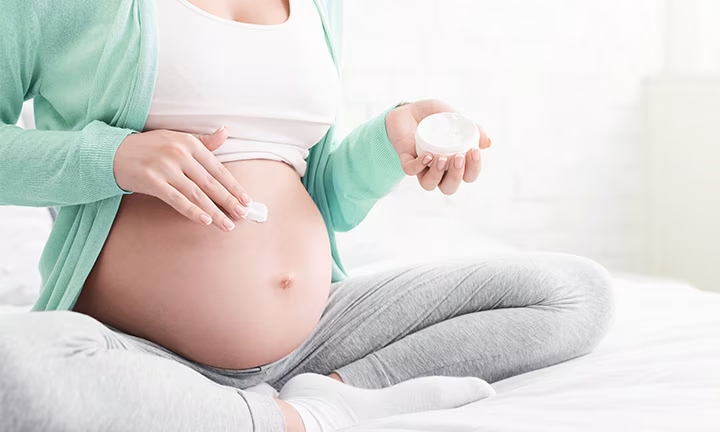
Itching During Pregnancy
Pregnancy brings about many obvious bodily changes, such as gaining weight and a belly bump – and a host of new conditions too. The most obvious are fatigue, possibly some moodiness and very often, nausea. But itching during pregnancy might be one that surprises you.
Whether you experience vaginal itching in pregnancy, itchy skin or simply itching all over, you may wonder why no one warned you about this lesser-known nuisance! We’re here to help you find out why it happens and how to get relief you’re your itching.
How common is itching in pregnancy and when does it stop?
Itching in pregnancy is not the most common condition, but about 20% of women will experience itching at some point during their pregnancy. It can be mild or moderate and can occur at any time. Itching can be irritating, uncomfortable and rather a nuisance, but it is a normal part of being pregnant. But once the scratching begins, it’s hard to stay focused on anything else! Your body itching during pregnancy can be both physically and emotionally challenging, but it will go away after you have given birth. Don’t forget, if it becomes really annoying, you can always ask your midwife or GP for help and advice on how you can treat the symptoms. Read on to find out more about the four most common kinds of itching and what you can do about them.
Itchy skin during pregnancy
Your skin does a lot of stretching during your pregnancy, and if you have noticed your tummy starting to itch, it is probably caused by your abdomen stretching over your growing baby bump. As your skin stretches it becomes dry and can get flaky – and sometimes can be accompanied by a rash. Along with the itching, you might notice some stretch marks on your tummy, breasts, thighs, bottom or even your upper arms. As the name suggests, stretch marks occur when your skin stretches and loses elasticity due to hormonal shifts. Even your stretch marks can become itchy.
Remember that stretch marks, itchy skin and weight gain are all perfectly normal while you are pregnant. Things will calm down after you have given birth, and healthy eating and gentle exercise will help you to bounce back to normal. Try our handy pregnancy weight gain calculator to help you maintain a healthy weight based on your pre-pregnancy BMI.
Breasts itching in pregnancy
Your breasts can change a lot during your pregnancy, and very often these changes are one of the first signs of pregnancy. If your breasts start itching during pregnancy, it’s usually for the same reason as any itching elsewhere – your skin is expanding, stretching and drying out. Even during early pregnancy, you might notice some itching and significant changes in your breasts such as tenderness or heaviness. Don’t be surprised if you grow a whole cup size during your first trimester! Most of that growth happens due to a build-up of the fatty tissue that breasts are made of, and also an increase in milk glands. Milk production can start from as early as 16 weeks into your pregnancy in preparation for feeding your baby. Even your nipples and areolas can start to itch during pregnancy.
Vaginal itching in pregnancy
Vaginal itching during pregnancy can sometimes occur – and even itching around the urethra. This is more likely to crop up later on in your pregnancy. You might also notice some pain, burning or vaginal discharge, all of which may be normal yet can be uncomfortable. Like the other types of itching, these symptoms subside after giving birth. You may experience more vaginal itching during pregnancy because your fluctuating hormones can cause a pH imbalance, which could also lead to thrush, a yeast infection. Unfortunately, yeast infections and itching in the vaginal area during pregnancy are quite common, but don’t worry if you’re experiencing symptoms. Ask your midwife or GP for advice on the best treatment. There are some treatments that you should avoid during pregnancy and they will know which treatment is best for you. Pink-coloured vaginal discharge later in pregnancy is called a “show” and means that it will not be long before labour begins.
Anal itching in pregnancy
Of all the itching that you can experience during pregnancy, itching of your private parts can be the most embarrassing. Anal itching – an itchy bottom – is also really inconvenient! Remember, your body is going through rapid hormonal changes and there are some changes that are out of your control. A common cause of anal itching during pregnancy is developing hemorrhoids, otherwise known as piles; swollen blood vessels around the anus and rectum. Piles don’t just occur during pregnancy. They are often caused by constipation and although uncomfortable, there are plenty of things that you can do to make them better, such as staying hydrated.
In summary
Itching can come in different forms, and some forms are easier to deal with than others. Most itching is caused by changes in your skin, such as growing and stretching, hormones and yeast infections, depending on exactly where it occurs. Itching can be inconvenient and embarrassing, but there are things that you can do to calm it down and make it more bearable.
How to get relief from itching in pregnancy
Hopefully it has been helpful finding out why itching during pregnancy happens, but it’s even more helpful to know how to get relief from it. Luckily, you can resolve most itching in pregnancy, whether it’s your first, second or third trimester, with the following remedies that you can try at home. And if you experience your body itching all over during your pregnancy at night, these solutions can help soothe and calm irritation at all hours.
Stay hydrated and moisturise
It sounds simple – and it really is – yet it can make a world of difference to your itchy skin. Staying hydrated is a great way to support not only your skin but also to help treat itchy piles if they are causing you irritation. Drink plenty of water throughout the day. Moisturising skin will help reduce any itching and flaking and it can be very calming to apply a cream or oil to your growing bump, your legs, breasts, bottom or thighs to relieve itching and help your skin to stay supple.
Take a bath with oatmeal, corn starch or Epsom salts
A good soak in a warm bath with some added extras may help with your itchy skin. Colloidal oatmeal (the kind used in lotions and treatments) is a great ingredient to help soothe and calm irritated, itchy skin. Epsom salts have long been known to have the benefit of supplying magnesium to the skin when added to a warm bath. Taking a bath before bed has other benefits, too; it can help you to unwind and get ready for sleep as well as soothing your itchy skin.
Wear loose clothing with natural fibres
Hormonal changes can make you feel warmer and sweat more during pregnancy. Getting too hot and wearing clothes made from synthetic fibres can make your itching worse. Choose comfortable, loose clothing made from cotton, linen or bamboo as it can really help to let air circulate round your skin. Natural fibres also absorb sweat more easily, keeping you cooler and more refreshed.
Eat a fibre-rich diet
Like keeping hydrated, eating a high-fibre diet can alleviate constipation that can lead to piles, so make sure that you are including plenty of fruit, vegetables and high-fibre cereals in your diet. Not only will this help with your energy levels and wellbeing in general but it can also reduce certain embarrassing itching during pregnancy!
Ask your GP or midwife for an anti-itch cream
Thrush is really common in early pregnancy as your hormones change, and there are lots of over-the-counter creams that can help ease the symptoms – but not all antifungal creams are suitable to use for itching in pregnancy, but your midwife or GP will be able to help you choose one that is both safe and effective, such as clotrimazole.
Avoid sitting down for too long
Getting up and moving about more will help relieve anal itching and give you a bit of exercise as well! It boosts your circulation and allows airflow round your skin.
Summary
Most itching in pregnancy can be relieved by following a few simple tips, like staying hydrated, eating a fibre-rich diet, taking gentle exercise and wearing comfortable, loose clothing in natural fibres. There is also medication available for treating thrush or piles – your midwife or GP will be able to recommend the best one for you. And don’t forget the benefits of a good long soak in the bath with a little colloidal oatmeal or similar soothing addition.
Severe itching during pregnancy
Although most itching during pregnancy, including vaginal itching, is mild, occasionally some people can experience more severe or extreme itching. If this happens, you should let your GP or midwife know as soon as you start having symptoms, especially if the itching starts during the third trimester (month seven onwards).
FAQS AT A GLANCE
Yes, most itching in pregnancy is perfectly normal and it will go away after birth
- https://www.nhs.uk/pregnancy/related-conditions/common-symptoms/stretch-marks/
- https://www.nhs.uk/pregnancy/related-conditions/common-symptoms/vaginal-discharge/
- https://www.nct.org.uk/pregnancy/worries-and-discomforts/common-discomforts/itching-pregnancy-five-things-you-need-know
- https://northsurreymidwives.co.uk/the-pregnant-midwife-the-first-trimester/
- https://www.nhs.uk/pregnancy/related-conditions/common-symptoms/common-health-problems/
- https://lloydspharmacy.com/blogs/womens-health/thrush-in-pregnancy
- https://www.nhs.uk/pregnancy/related-conditions/common-symptoms/thrush/
- https://www.nhs.uk/pregnancy/keeping-well/exercise/
- https://www.nhs.uk/pregnancy/related-conditions/complications/itching-and-intrahepatic-cholestasis/
- https://www.nhs.uk/pregnancy/keeping-well/
Read more about Pregnancy
Join Pampers Club and get:


